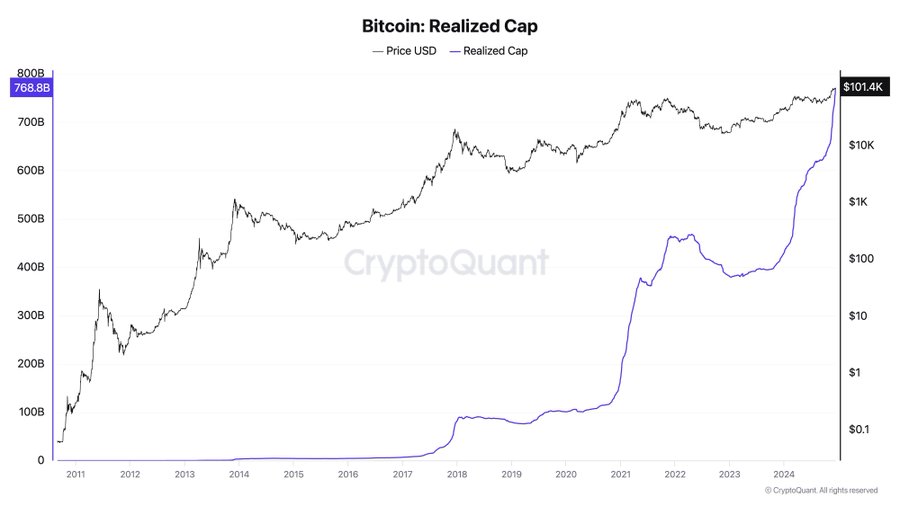The Bitcoin market is attracting a considerable amount of capital amid a recent surge in institutional interest globally.
2024 will go down as a landmark year for crypto, especially Bitcoin. Following the launch of spot Bitcoin ETFs in January 2024, the asset class has seen unprecedented institutional adoption.
Amid this wave of institutional adoption has also come never-before-seen demand.
According to CryptoQuant founder Ki Young Ju, $80 billion is flowing into the Bitcoin market every month.
The prominent analyst shared this view in an X post on Thursday, December 12, noting that, in addition to this high capital influx, most of the total capital the asset has attracted has come this year.
“Nearly half of the capital that has entered the Bitcoin market over the past 15 years was added this year,” he wrote, adding, “If you don’t understand what this means, you still don’t understand Bitcoin.”
The metric is significant in the context of Bitcoin’s limited supply. Following the asset’s April 2024 halving, about 13,500 Bitcoin is now mined per month, at current rates that is around $1.35 billion.
With $80 billion flowing into the market within the same timeframe, this suggests that Bitcoin is seeing significantly higher demand than supply, which is supportive of its price.
Indeed, even though Bitcoin’s price is at record highs, above $100,000 at the time of writing, a chart shared by Young Ju suggests that the asset is trading at its realized cap, often indicative of market bottoms. The realized cap represents the value of each coin when it is last moved.
With the new Bitcoin supply set to reduce every four years, the impact of this demand on price will likely only grow stronger if such demand is sustained.
DisClamier: This content is informational and should not be considered financial advice. The views expressed in this article may include the author’s personal opinions and do not reflect The Crypto Basic opinion. Readers are encouraged to do thorough research before making any investment decisions. The Crypto Basic is not responsible for any financial losses.




